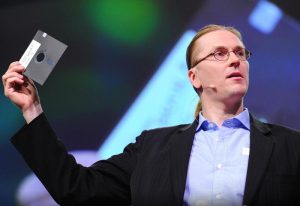 There is a line in a recent keynote speech by Mikko Hypponen, the CRO of F-Secure that goes something like this: “If we do our job in cyber security, then nothing happens.” It is so true, and made me think of the times when various corporate executives challenge their investments in cyber security, wanting to see something tangible. Mikko makes this point by asking them to look around at the conference room where these conversations are taking place, asking them if the rooms are cleaned to the satisfaction of the execs. If so, perhaps they should fire their cleaning staff, because they are no longer needed.
There is a line in a recent keynote speech by Mikko Hypponen, the CRO of F-Secure that goes something like this: “If we do our job in cyber security, then nothing happens.” It is so true, and made me think of the times when various corporate executives challenge their investments in cyber security, wanting to see something tangible. Mikko makes this point by asking them to look around at the conference room where these conversations are taking place, asking them if the rooms are cleaned to the satisfaction of the execs. If so, perhaps they should fire their cleaning staff, because they are no longer needed.
Now the difference between your security engineering staff and your janitors is obvious. You can’ t see all the virtual dirt that is building up across your network, the cruft of old software that needs updating and polishing, and the garbage that your users download on to their PCs that will leave them susceptible to attack. And that is part of the problem with cyber security: most things are invisible to mere mortals, and even some specialists can’t always agree on the best cyber hygiene techniques. Most of us have an innate sense that mopping the floor before dusting the shelves above is the wrong way to go about cleaning the room. That is because we all understand (at least on a basic level) how gravity operates. But when it comes to cyber, should we be changing our password regularly (some say yes, some say nay)? Or using complex strings of a certain length (some say 10 digits is fine, others say longer ones are needed)?
Mikko ends his talk by saying that we must assume that we are all targets by someone, whether they be a hacker who is still in high school or a government spy that is eager to get inside our company’s network. He says, “The times of building walls are over, because eventually someone will get in our enterprise. Breach detection is key, and we all have to get better at it.”
I agree with him completely. We must get better at seeing the virtual dirt on our networks. Building a better or bigger wall won’t stop everyone and will just foster a false sense of cyber security. And just because nothing happens, this doesn’t mean that cyber security folks aren’t hard at work. They are the cleaners that we don’t ever see, unless one day they leave someone’s mess behind.
Corollary to Mikko’s argument is that the best cyber defense is often between ones ears.